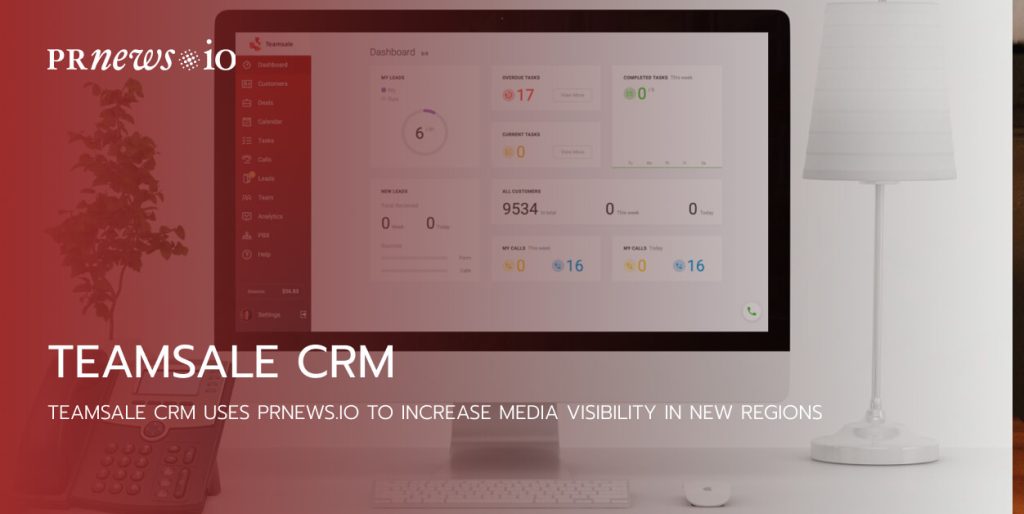Corporate brand reputation influences your company’s profit and market rates as well as the desire of the potential employees to work in the company. Most senior managers and business owners are aware of the impact of corporate reputation management. They understand that it is much more important than it used to be. But many large enterprises still don’t have a corporate reputation management strategy.
In this post, I’ll show you how to deal with your online corporate reputation management and why it’s so important.
What Is Corporate Reputation?
Corporate reputation is best specified as the overall quality of your brand’s mark across every communication message and each segment of your target audience. After a time, your brand’s reputation as a result of how clients and employees think and feel about your brand. Finally, reputation is creating an opinion and how people engage with your business now and in the future.
Some of the significant elements on your brand’s reputation involve:
- Workplace Culture
- Client Focus
- Social Responsibility
- Service Quality
- Executive Leadership
- Online Presence
- Ethical Behavior

What Is Corporate Reputation Management?
Corporate reputation management is any activity your company makes to recover reputation damage or create a strong, positive, and more advantageous online presence.
In a competitive digital environment, an effective corporate reputation management strategy is integral to improving and growing your company’s online presence in search, establishing brand authority, strengthening customer sentiment, and standing out in your industry.
Why Is Corporate Reputation Management Important?
It’s obvious to all of us that building a strong positive corporate reputation is important, but do we fully realize what this means in practice or what “strong positive” actually is? When executed correctly, a strong positive corporate reputation management should perform two things:
- Associate your brand with an idea or concept.
- Establish expectations for your future behavior and activities.
Your corporate reputation is what clients and partners know and feel about your company. It’s what drives brand engagement and identifies your position in your field and the market.
Strong positive corporate reputation management in addition can:
- Increase sales
- Strengthen clients’ loyalty
- Attract top talent
- Boost company market value
- Open up market opportunities you might not apart from that have had
Content Marketing Platform
- 100,000+ media publications;
- get backlinks to your product;
- scale work with content distribution.
Corporate Reputation Management Strategy
A good reputation is not a chaotic thing. It takes a carefully-crafted plan and permanent action to protect your reputation from danger and establish the opinion you want to be about your brand. corporate reputation management strategy should be custom-built, but usually, it includes the following tactics.
Corporate reputation management process:
- Improve your social media presence. Discover new networks and claim social media accounts, optimize your social media pages to rank for branded search queries.
- Publish positive content. Publish and promote positive news about corporate events, growth, and achievements.
- Amplify brand expertise, authority, and trust. Show the company leaders and experts to strengthen your online presence through the media mentions and posts in different publications.
- Permanently track online mentions. Discover and react to negative content immediately.
- Use SEO activities to boost positive content. Corporate brand management won’t be successful unless it’s processed by search engine optimization. The bigger your brand’s reputation issue happens, the more important SEO activities become.
Steps to Successful Corporate Reputation Management
Let’s look at the must-have steps to improve a successful corporate reputation management process:
Decide What You Stand For
It’s vital to make exactly this first step. If you don’t know what your company stands for, you shouldn’t start to manage your brand reputation. Your marketing activities and product development will be misled, clients won’t know what to expect from your brand and you’ll eventually start to lose the loyalty of your customers and therefore sales as well.
When a client has a different experience every time they make a purchase from you, they will have the impression that you just don’t care about them. Remember, a good reputation not only means high quality of the products or services, t’s you who decides what you stand for, and as long as you do it constantly, you’ll start to create a good reputation.
Some examples you might want to choose to include:
- Be famous for your spectacular customer service.
- Set a reputation for being the cheapest and the quickest.
- Target your market to a single niche product and become the best at it.
- Become a local leader in a certain product or the best producer of a product unique to your location.
Whatever you decide you represent, just make sure it’s clear, easy to understand and your company will naturally start to build a good reputation.

Manage Your Message and Be Consistent
Once you’re clear on what you represent, make sure that this message gets presented consistently across all channels. This includes:
- Make sure your employees know what you represent first and foremost. They are the closest people to your clients and the main builders of your reputation. So they have to understand clearly the message they’re selling. This message should come from the top down and be frontline. All executives should know that “We represent “this” and we want to achieve “this”!”.
- Assure you’re consistent across all social media platforms. Again, you should transfer the same message to everyone in a consistent style and tone.
- Create appropriate content as part of your corporate reputation strategy.
- Transmit the simple message. You build your reputation on something clear, easy, and meaningful for people to remember.
- Be authentic. Never copy your competitors, share your own stories.
The more you can deliver a clear and consistent message (and, of course, to be able to prove what you say) the more consolidated your reputation becomes in people’s minds.
Be Attentive
You cannot have a positive brand image if clients think badly of you. The indicator for measuring how your clients perceive you is what they say and write about you on social media and review websites.
For this reason, you need to listen to your customer feedback carefully. When a customer spends to writing a review, you should realize he/she is serious about what is written. In your customer reviews, there is the key to what your clients are looking for. It also gives you a good understanding of what they think of your company.
Therefore, you should spend more time and effort in reacting to and analyzing your customer reviews. This includes social media comments/posts, survey responses, customer phone calls and emails, call center notes, and other sources of customer opinions.
Your task is to track, gather, analyze, and make sense of customer review data. This way you can get a sense of what they expect and how they feel about your company.
Improve Your Employer Brand
If you want to build a successful company, you need a skilled and experienced team. But you’ll not able to hire it if you have got a bad employer brand reputation.
To build a better employer brand, you have to find out what your company’s value proposition is, make research on what your employees feel in your company and take notes of their concerns, and build a culture that promotes shared values.
Take part in Community Outreaches
Want people to think of you as good and helpful? Do the right way.
Pay attention to the concerns of your clients, what they are thinking about and what they master to you. This may help after disasters, save the environment, and charity programs, and other ways you can do for the community around you and your clients.
Harvard law research has shared that community outreach efforts can add so much value that will lead to increased client loyalty and lower reputational risks.
Have a Backup Plan in Times of Crisis
There are many examples where a poorly managed client issue had bad consequences for a company. You have to prepare to not find yourself in such a situation.
You must have a prepared procedure to mitigate or guard against such examples where a customer reviews, tweets, comments, posts, or blog content proves to be bad news for the company.
These measures could involve creating a relationship with media outfits, resolving serious customer issues before they reach the big audience, preventing such issues from reaching public ears, and asking for the help of your legal and PR team before you put out any external communications.
Doing so things should protect you in the case of a PR nightmare.
Consider Using the Services of a Corporate Reputation Management Company
If you have been making a lot of effort in your company and finally results are not matching those you were expecting, you may need to estimate your corporate reputation.
This is especially important if you notice the next signals:
- Your conversion metrics show bad performance.
- You have more clients saying bad things about your brand than good.
- Negative online comments.
- Client reviews about your brand are converting into a negative trend.
These signals say one thing – it’s time to get some help. Therefore, it’s time to get some help. Find a service that can help manage corporate reputation and let them deal with maintaining a positive reputation for your business.
Final Words
Establishing a good corporate reputation means ensuring you always transmit a consistent message, that you consistently sell this message and that you stay current on your customer opinions. Once you can adhere to these three principles consistently, you’ll find your reputation will start to work and yield results itself.
Read more:
- Best Reputation Management Software
- Online Reputation Management: How to Shape Your Brand’s Perception
- What to Do with Social Media Reputation Management
- Comprehensive Guide on Personal Reputation Management
FAQ: Corporate Reputation Management
What is corporate reputation management?
Corporate reputation management surpasses not just media relations and press release distribution. It involves search engine optimization, social media management, reputation marketing, content creation, and public relations into a single service. The corporate online reputation management efforts improve the company’s branded search results which interfere with the brand’s revenue and growth.
What is a corporate reputation management strategy?
In a competitive online environment, an effective corporate reputation management strategy is crucial for boosting your company’s online presence in search, building brand authority, enhancing customer opinion about the company, and standing out in your industry. The corporate reputation management strategy should include plans to strengthen weak areas and enhance strong areas. A weak area might be products or services with bad quality, long delivery, that people are complaining about in comments and testimonials, negative press coverage, or missteps by executive staff.
The best corporate reputation management services
One of the effective reputation management and PR companies is PRNEWS.IO. This professional service will provide you with the best results because of its excellent mastery and great experience of online reputation recovery services. The goal of PRNEWS.IO is to make online reputation management and social media easy to manage. Here you can count on the help in improving the company’s brand in public through assistance in social media and media. For example, PRNEWS.IO may help in receiving a blue badge on Instagram or Twitter. A blue badge provides you with more credibility to your account and by default increases interest in your personality. Check out more how Instagram verification and a Twitter blue tick will help you in boosting your corporate reputation management process. You may also request the next service for online corporate reputation management:
- media publications about you;
- crowding out negative news with positive;
- boosting an Instagram account or Twitter profile:
- assisting in getting verification on Twitter and Instagram.





